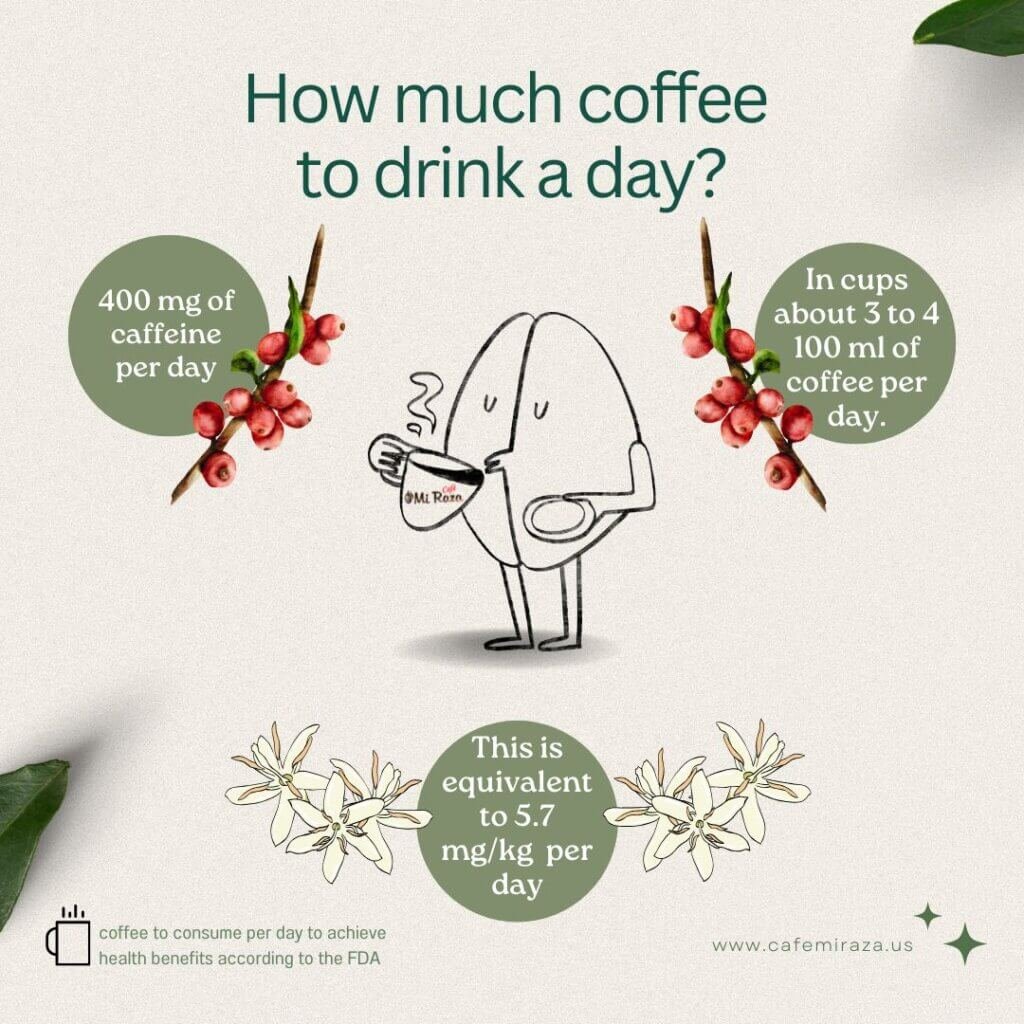
How much coffee should you drink a day?
It is good to delve every day into the details that a coffee consumer should know about this drink, not only to enjoy its flavor, but to know what its contributions are to our health.
There are many studies linked to coffee consumption that bring benefits and that are increasingly becoming more evident: Parkinson’s, heart disease, type 2 diabetes, gallstones, depression, suicide, cirrhosis, liver cancer, melanoma and prostate cancer, among others. as performance enhancers in athletes.
In a study of more than 200,000 participants who were followed for more than 30 years, all who drank coffee between three and five cups a day were 15% less likely to die prematurely, from any cause, above the people who don’t drink coffee.
Among the most surprising data was a 50% reduction in the risk of suicide among men and women who consumed coffee regularly. Other studies demonstrated the effect of coffee as a depressant and that is why people abandoned the idea of taking their own lives. This study was developed by Harvard University.
This seems like a battle for the best because only until 1991 was coffee considered by the World Health Organization (WHO) as a possible carcinogenic food and also a cause of the diseases that today are proven to be a benefactor.
Everything related to the use of tobacco consumption who was really the one causing all the evils since in most cases they were consumed together.
Professor Walter C. Willet of Harvard University’s T.H. School of Public Health. Chan. Associate Professor of Nutrition and Epidemiology states: “In general, despite several concerns that have arisen out of nowhere over the years, coffee is incredibly safe and can have several important benefits.”
This seems good in all light; But this is not the case, caffeine passes to the placenta and affects the fetus, and drinking coffee during pregnancy can increase the risk for pregnant or breastfeeding women. It could also be said that coffee causes another problem for those who drink it, such as loss of sleep.
This happens because caffeine binds to the same receptor as the neurotransmitter adenosine, a natural sedative. It is better to identify who is harmed by drinking coffee to fall asleep and replace it with another drink.
If we look at the components of coffee, about 900 to 1000, even more than that; The vast majority are beneficial for health and we could also mention polyphenols and antioxidants. These can inhibit the growth of cancer cells and may reduce type 2 diabetes; Antioxidants, which have anti-inflammatory effects, can reduce heart disease and cancer, which if we review the figures in the US, are the most common diseases today.
It is estimated that more than 38 million people suffer from diabetes, which corresponds to approximately 1 in 10 adults and approximately 90 to 95% of them have type 2 diabetes. According to the United States Department of Health.
But how many cups of daily consumption is recommended to achieve these benefits? Or should we talk better about milligrams of caffeine per day? or mg per kg of body mass? Yes, it is better since each consumer prefers to drink different amounts each day.
In that order of ideas and according to the FDA, it is 400 mg of caffeine per day. This is equivalent to 5.7 mg/kg bw per day. In cups we can talk about 3 to 4 100 ml cups of coffee per day.

But be careful; Don’t forget to drink specialty coffee. Of origin and certified in your cup. Do not neglect its preparation and roasting. In these steps of the coffee chain, its quality is also damaged and such a beneficial drink can become a true poison.
It is recommended to drink coffee alone, filtered and in the recommended proportions so that you can express all its benefits. Drinking coffee accompanied by additional substances can make the consumer fall into a true death trap; calorie consumption of more than 500 to 600 in a single coffee and without adding the accompanying flour and sweets, increasing for health.
Fuente:
Harvard University. School of Public Health.
https://www.fda.gov
https://www.who.int/es

